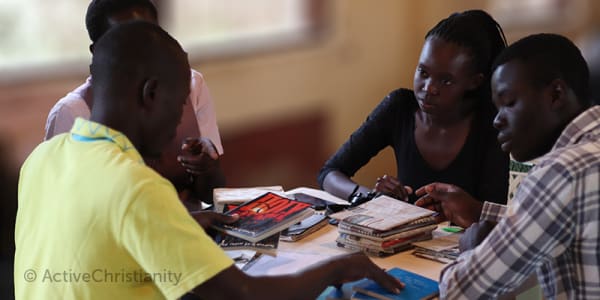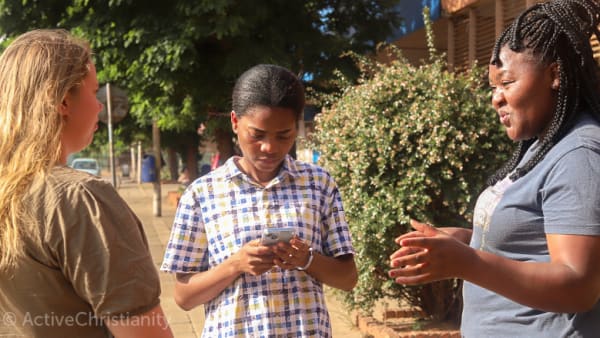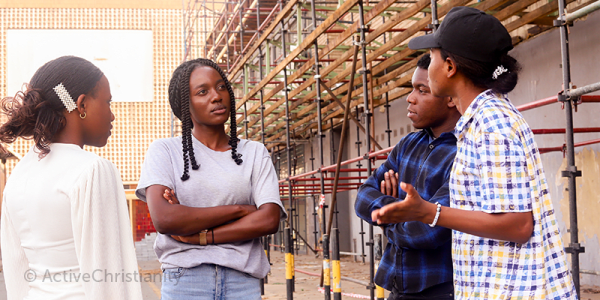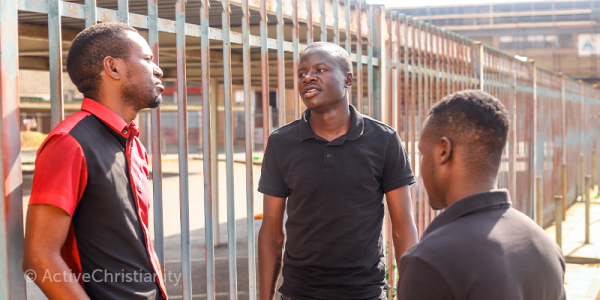“After he had been made perfect, he became the source of eternal salvation for everyone who obeys him. He was appointed by God to be a high priest according to the order of Melchizedek.” Hebrews 5:9-10 (CEB).
Melchizedek – he is a person in the Bible who people know very little about. He suddenly appeared and gave Abraham food and wine and a blessing after Abraham had fought to free his nephew Lot in the city of Sodom. He was “the King of Salem”, but no one knew who his mother and father were. He appeared for a short time and then quickly left, disappearing back into the unknown. (Genesis 14:18-20.)
Though there is very little known about him, his story has always interested me. He came to Abraham just at the right time, spoke the exact words Abraham needed, and then left.
How can I be a Melchizedek?
It has given me a longing to be a blessing like Melchizedek when I deal with others. There can be many needs in those around me. Perhaps someone needs a kind word, a good meal, or just a listening ear. Perhaps someone is sick, alone, or struggling in some way. If I only think about myself, my own needs and wants, it is easy to miss the opportunities to be a blessing for the others. But if I really want to bless the others, and have a longing to serve God in all I do, then I can listen to the voice of the Spirit and trust that He can lead me to do those things that can be a help for others.
But how do I know what to give? How do I know what to say to someone who might be in need? The answer is first to have a pure heart – to do the things that I already know are right. When God wanted Moses and Aaron to speak to the Israelites, He said, “Now go! I will help you speak and I will teach you what to say.” Exodus 4:12 (CSB). When we live according to what we know is right, then we also have this promise. When God wants us to do something, He also gives us what we need to do it. We must just go in faith, speak or do what God speaks in our heart, and then leave the results to God.
Leave the results in God’s hands
I know for myself, sometimes leaving things in God’s hands is very difficult. We like to see the results of our works. Did I say the right thing? Is the person thankful for what I gave? Do others know that I am such a “blessing?”
All these thoughts can come up quite easily. But if I am looking for others to thank me, or praise me or even to see if what I did or say was the right thing, then I am only seeking my own interests. That is not what God wants when He uses me to bless someone, and it is not what Melchizedek did either. He quietly went away and left everything in God’s hands.
It is not known if he ever knew the results of his actions. The truth is, his offering of food and wine gave Abraham strength and courage after the battle. But most importantly, his words of encouragement caused Abraham to say No to the king of Sodom when he wanted to give Abraham earthly riches. This is very important, because it meant that Abraham did not put his trust in earthly things or in people, but only in God. This act was so important that Melchizedek was also known as “the king of righteousness”. (Hebrews 7:1.)
There have been times in my life when I really wanted to help someone, but I also realised that I didn’t have enough human strength left, and I had to make a decision. Do I continue trying to help, knowing that I am only doing it in my own strength? Or do I go and leave that person in God’s hands, knowing that He has a plan for those I care about and that He will continue His work? First in that person’s heart, and second perhaps through others who can also hear His voice.
God gives the growth!
Melchizedek’s story has been a great help for me in those times. His example has given me a firm faith in my heart that when I listen to the voice of the Spirit, I can trust what He works in my heart. I can believe completely that God continues to work even after I have quietly gone, and I can leave the results completely in His hands.
I am reminded of the verse in 1 Corinthians 3:7 (GNT): “The one who plants and the one who waters really do not matter. It is God who matters, because he makes the plant grow.” Whether I see the results of my works and prayers now or in eternity, it does not matter. Because it is God who is to receive the honour for them.
May I always be pure so that I can hear God’s voice in my heart, may I be humble so that I can do the works He has planned for me, and may I be righteous so that I can be like “the wind [that] blows where it wishes, and you hear the sound of it, but cannot tell where it comes from and where it goes. So is everyone who is born of the Spirit.” John 3:8. That is my goal in life, and I know that I will have everything I need – for myself and for the others.




